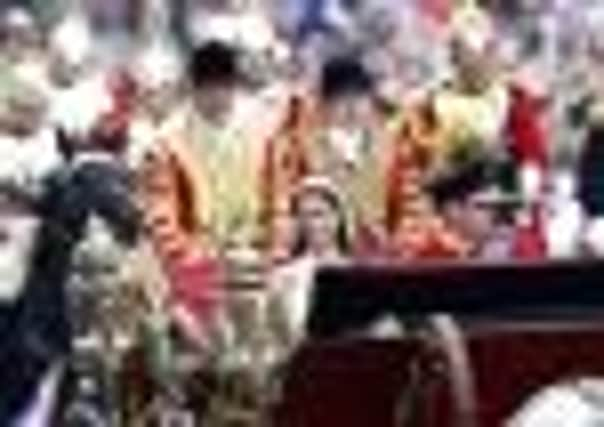Eric Grove: Army’s political battle against strategic cuts


Contrary to popular and media opinion, this is a new term after being coined in an Army publication in 2000 to define the obligations that the military expect – and have, contrary to legend, generally received – from the state.
I well remember when a civilian lecturer at Dartmouth being quite jealous of the increasing privileges, not least in pay for equivalent grades, that my service colleagues were receiving in the 1970s and early 80s.
Advertisement
Hide AdAdvertisement
Hide AdIn recent years, the extent of active service commitments have shown up certain deficiencies which have been exploited by service (especially Army) spokesmen. After some uncertainty, the Government has finally responded to this campaign with this week’s statement. There was also a more political motive, however. The Military Covenant announcement covered was significant in terms of Britain’s real military capability.
Last year’s so called Strategic Defence and Security Review (SDSR) has clearly not solved the problem of the mis-match of policy and resources, a shortfall that amounts to around £3bn over the next three years.
The problem was staved off in this financial year by a special deal that squeezed £800m out the Treasury in return for some marginal cuts to such parts of the defence budget as a public relations exercise. The financial year starting next March is another matter and it was announced this week that a three-month study is being carried out to “match our assumptions with the spending settlement”. In other words, this is to see if current plans are still affordable. The assumption is that further cuts will be necessary.
Various options have been suggested, all – as usual – covering the equipment that provides the muscle which true defence policy should be all about. Ark Royal’s sister ship, Illustrious, which is currently undergoing a substantial and expensive refit to allow her a few more years service as an amphibious helicopter carrier and command ship (with a capability to operate as a platform for the Harriers of our American, Italian and Spanish allies) might be scrapped straight away without entering service. Ironically, after all the fuss about transport helicopters, the future of the already reduced buy of Chinooks is in doubt, as is that of the already much reduced “Future Rapid Effect System” armoured vehicle programme. If anything has to go, it ought to be the latter.
Advertisement
Hide AdAdvertisement
Hide AdThe Army has done well in obtaining many new vehicles as a result of Afghanistan and the design of the FRES vehicle to be procured leaves quite a lot to be desired given the lessons of recent combat. It ought quietly to be put to sleep. Questions have also been asked about the rather lavish provision of new RAF tankers.
Indeed, more could be done to save real money in a real new review. The Army has successfully monopolised Afghanistan in popular perception if not reality – currently the Royal Marines are the core of the battle group there, as they often are, given their more frequent deployment cycles. Wrapping itself in its Afghan blanket allowed the Army to resist serious scrutiny in the SDSR.
Its personnel cuts were proportionately much smaller than those in the Royal Navy and the RAF, the two services most crucial to our national security. The Royal wedding showed the Household Brigade at its usual best – but is that really more important than the means to carry out the operations necessary to maintain our security in a dangerous world? These do not include long term “boots on the ground” operations like Iraq and Afghanistan that should not be repeated. Despite some problems with the definition of strategy, Libya, like the original successful toppling of the Taliban, shows the desirable nature of future conflict, external support to locals by air and maritime forces. This is not the time therefore to scrap those key capabilities further.
If the SDSR had taken the right decisions, the financial problem would not be so great as it is. The last-minute preference shown for Tornado over Harrier was, reliable sources have told me, because the Treasury was actually offering more money. That offer now looks rather strange in the context of the current mismatch of resources, especially as the Tornados proved rather less than flexible in responding to Libya.
Advertisement
Hide AdAdvertisement
Hide AdThe long flights of a few of these aircraft in the opening stages of the campaign, costing millions of pounds in fuel brought back the gibe common in Royal Navy circles after the Vulcan raids on the Falklands: “Never in the field of human conflict was so much fuel expended to deliver such little ordnance on target.” Carrier-based Harriers would have been the best response the Libyan strike challenge.
Instead, we shall no doubt cut the platforms and forces we really need to face an uncertain world. After all, the Army has all those horses to support and they must take priority – mustn’t they?
Eric Grove is Professor of Naval History at the University of Salford.